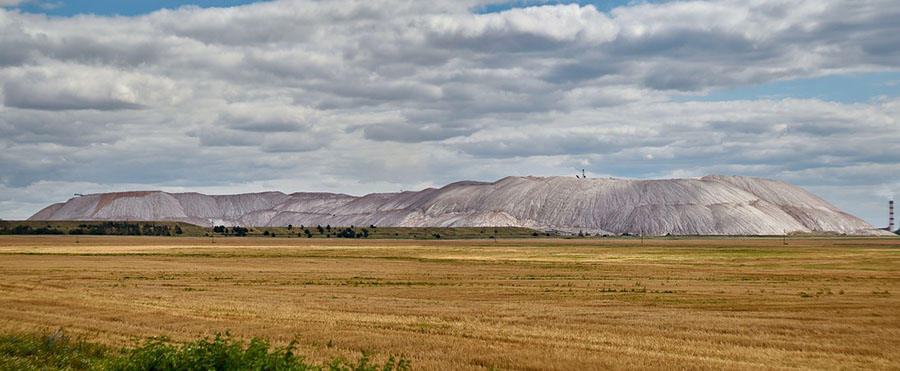Kevin Bambrough: They haven't changed our perspective because we've been prepared for these events for some time. We view this as a 15- to 20-year trend where runaway deficits and printing money is the chosen solution central bankers will provide to the markets. It will ultimately result in the U.S. dollar losing its reserve currency status and paper money, as we know it, becoming essentially worthless over time. Real businesses and real assets are what you should own.
We focus solely on resources at Sprott Resource Corp. (SCP:TSX) and Sprott Inc. (SII:TSX) focuses primarily on resource-related investments. Our long-term strategy is to sell businesses with strong margins in fairly buoyant sectors that could become unsustainable and depressed in value over time. We then recycle those investments into areas of the resource sector that are quite depressed and have an upside in valuation and margins. At the same time, we focus on building solid businesses in jurisdictions where we can develop our assets and create value.
Paul Dimitriadis: We started out in September 2007 with roughly $70 million ($70M) of capital with the idea of building a publicly traded private equity firm. Over five years, we've compounded capital, net of fees, at roughly 28% annually, growing the net assets to over $450M during a period when the resource sector has been extremely volatile and most resource stocks and the major indexes are down. We're quite proud of that record. We've also been very active in buying back our shares to increase the net asset value per share, and have bought back a little over $70M worth over the last five years, which we're committed to continue doing.
TER: In the broad economic/financial picture, how far down the road can governments keep kicking this can?
KB: I think the printing is going to continue out of necessity because governments need to provide funding for their operations. When governments issue bonds, central banks are the ultimate backstop for buying them. This process will continue on until investors around the world stop holding onto bonds or currency as a store of value and decide to own something more concrete than a promise from a bank or a government institution.
PD: To follow up on that, over the past 5–10 years, there's been a lifestyle adjustment taking place globally that's being reflected in the price of real assets. The emerging markets are getting wealthier and competing for real assets with the developed economies. We're going to continue seeing the pressure on the EU and North American economies as the middle class gets squeezed further, while the emerging economies continue to progress and consume more, putting additional pressure on the resource pricing.
TER: Maybe we can talk about the individual resource segments you're interested in at Sprott, starting with the oil market.
KB: In 2007, when everybody was loving oil at $140/bbl and gas at $10 per thousand cubic feet (Mcf), most resource funds were very heavy in oil and gas. We went to investing in coal, phosphate and potash. Nobody was really even looking at phosphate and potash at that time and the coal market was facing bankruptcy. Sprott Resource stepped in and gave capital to a company called PBS Coals Ltd. during a very weak time in the market when we saw a rebound coming. When that rebound came with very high coal prices in 2008, we took the company public and ultimately sold it. It's now fully owned by Severstal Russian Steel (SVST:LSE).
Similarly, we monetized some of our potash and phosphate investments during a lofty period in that sector during 2009 and reloaded most of our capital into oil and gas.
TER: What's your view of the oil market now, considering all the development going on all over the world with new offshore reserves that are fairly substantial?
PD: There's been a lot of development in unconventional drilling and development of offshore reserves that were previously difficult to produce economically. Much of this new production is relatively short life and expensive, and is putting us on a treadmill just to maintain current global production rates. Bakken marginal production is over $80/bbl. Offshore is very expensive, so we're putting a floor under oil prices at around $80/bbl West Texas Intermediate. It's going to be difficult to sustain production with these unconventional barrels that have steep decline rates.
KB: To continue on Paul's point, when the marginal price goes below that $80/bbl, we'll be buyers because that price is unsustainable and oftentimes companies will be trading at very low values to a low oil price. When the price gets high and multiples tend to expand on optimism, we'll be looking to monetize again. We've been continually adding to our oil and gas position. We've managed to merge Orion Oil & Gas Corp. with a company called WestFire Energy Ltd., and another company we invested in called Galleon Energy Inc., which became Guide Exploration Inc. They all came together and now it's called Long Run Exploration Ltd. (LRE:TSX). It's a very large oil and gas producer with significant upside.
PD: Long Run is currently producing around 23,000 barrels of oil equivalent per day, at a roughly 50/50 ratio of oil to gas. It has an incredible land package of around 600,000 net acres in northern Alberta and over a billion dollars in tax pools. We're excited about this because it's incredibly undervalued relative to its peers—probably 30–50% lower than companies of its size. Also, with its huge land package, we think that the company will be able to grow successfully over the next few years, principally in the Viking and the Montney. We're buying the cheap of the cheap and it's a core holding for us.
TER: Are you going to continue to grow Long Run or is it going to be taken out at some point by somebody larger?
PD: With sovereign funds and state oil companies, you never know where a bid might come from. But our focus is on building the company and developing its land position.
KB: An asset needs to be fully valued before we even consider parting with it because we're very patient, long-term oriented investors and we can afford to take our time to advance it.
TER: What are your thoughts on natural gas?
KB: The conventional wisdom in 2007 was that the gas price was going to stay above $10/Mcf. That winter everyone was concerned that we'd run out of natural gas. Fast-forward to 2011, when natural gas plummeted to $2/Mcf, and people were saying it was going to zero because the storage was going to fill and we wouldn't be able to deal with it. Finally, we had a big rinse-out in the sector. We continued to invest capital to build a bigger, stronger company that would be positioned for the rebound. Now we have a more positive market, and we think it's going to continue to improve. In 2007, the question was whether we could build enough terminals to import enough gas quickly enough. Now everyone's talking about exporting it—it's a complete mirror opposite.
TER: What are your expectations for the coal market?
KB: The coal sector is looking a lot like it did in 2007, when we were buying PBS Coals. It's a very depressed sector and we haven't begun to see a strong rebound yet. Almost every coal stock has been crushed back to lows they hadn't seen in years, and we're looking to put capital to work. We're trying to find the right opportunity, although it may still be a little early. We're focusing on emerging markets, where we would like to make long-term investments, buy assets or partner with foreign entities that want to access fuel sources for their own country. The main key is to be in a country where we don't have to worry about expropriation or excessive taxation. That's becoming more difficult, considering all of the government budget problems all over the world.
TER: Uranium appears to be coming out of the doldrums. What's your take on the sector?
KB: Despite Fukushima, many large utilities are seeking to build new nuclear facilities, especially in emerging markets and the Middle East. It's becoming increasingly evident that there's going to be a shortfall of uranium production in the coming years as some of the old mines are depleted. The depressed price doesn't make most new mines attractive investments, so the sector has been starved for capital for a few years now. We expect that higher prices will inevitably attract capital to the sector. The new facilities under construction are going to have to pay up to secure supply and they're going to have to fund mining projects, which is something we're actually looking at. We're working with some parties now that want to fund development projects in order to get offtake agreements in place.
TER: What uranium price would make uranium mining projects more economic?
KB: Investment would be much more attractive with uranium nearer the $75 per pound level. It may take a couple of years to get there.
TER: How are you playing that market?
PD: Our principal investment in the uranium sector right now is Virginia Energy Resources Inc. (VUI:TSX.V), which owns the Coles Hill deposit in Virginia. It's the largest untapped deposit in the U.S. and it would be an economic boon to the area, if developed. The big issue is the moratorium on uranium mining in Virginia, which explains why the stock is so cheap relative to the project size and economic value. The legislature is going to consider a new mining law in the near future and we're hopeful it will pass. If it does, that would obviously revalue this investment, probably making it worth multiples of what it is right now.
TER: When do you expect to see a legislative decision on this?
PD: The matter should be examined in the 2013 legislative session.
TER: Are there any private equity deals you're involved in that will soon be going public?
PD: We don't have any that we're going to be taking public soon. We just monetized an oil and gas investment called Waseca Energy for a large win. We're sitting at roughly $115M in gold bullion and $25M in cash.
KB: Right now we're very focused on getting Sprott Resource's stock trading much closer to its net asset value. It traded at two times net asset value when we first started the business, and as low as $0.50 on the dollar during bad times in early 2009. We've been buying back stock aggressively. We just announced a four million-share block purchase. We're going to keep doing whatever it takes to tell our story and attract investors that are interested in sticking with us for the long run.
TER: What do you see ahead in 2013, and how can investors profit or protect their assets?
KB: I see more of the same—more deficits, more printing, more bailing and more volatility. We think that precious metals are going to do very well in this environment and that investment demand is going to eventually overwhelm the paper market. In the 1970s, gold went from around $35 per ounce (oz) up to $850/oz in 1980. That was a 25-fold increase within 10 years. This gold bull market started at around $250/oz in 2002 and I'm convinced that this run will carry a larger magnitude at a higher multiple because there isn't as much physical gold held by central banks.
The seventies boom was ended in part by central banks dumping gold onto the market and leasing out their gold to bullion banks to flood the market in order to regain stability in the currencies, versus gold. That took interest rates to double digits all around the world. Now, no government can afford to raise interest rates because they're already at huge deficits and raising them would make deficits even larger. Gold's been up every year for the last 10 years but, at some point the doors are going to blow open.
TER: When do you expect mining stocks to perform more in step with the metals themselves?
KB: I think there's going to be a continued separation between quality stocks and the more speculative ones. In the early boom in the gold stocks, almost any stock went up 10- to 20-fold over a period of 10 years. Some of the bigger ones that had hedges didn't. The unhedged gold juniors and the exploration companies were awarded capital with very little discrimination by the investment community. Now we're starting to see more emphasis on the companies that could actually produce gold profitably and be free cash flow generators that become dividend-payers. They make money the old-fashioned way—they mine it.
TER: Let's end on that positive note. Thanks for speaking with us today.
KB: Thanks for having us.
PD: Thanks for the opportunity.
Kevin Bambrough founded Sprott Resource Corp. in September 2007. He is a seasoned financial executive with more than a decade of investment industry experience and is a recognized leader in the commodity investing space. Since 2009, he also has served as president of Sprott Inc., one of Canada's leading asset managers, which has more than $8 billion in assets under management. Between 2003 and 2009, he held a number of positions with Sprott Asset Management, including market strategist, a role in which he devoted a significant portion of his time to examining global economic activity, geopolitics and commodity markets in order to identify new trends and investment opportunities for Sprott Asset Management's team of portfolio managers.
Paul Dimitriadis is Chief Operating Officer for Sprott Consulting and Sprott Resource Corp. He has been with Sprott since 2007. Dimitriadis evaluates and structures transactions, coordinates and conducts due diligence and is involved in the oversight of subsidiaries and managed companies. He serves on the board of directors of two of Sprott Resource Corp.'s subsidiaries, Stonegate Agricom Ltd. and Long Run Exploration Ltd. Prior to joining the Sprott group of companies, he practiced law at Blake, Cassels & Graydon LLP. Dimitriadis holds a Bachelor of Laws degree from the University of British Columbia and a Bachelor of Arts degree from Concordia University.
Want to read more exclusive Energy Report interviews like this? Sign up for our free e-newsletter, and you'll learn when new articles have been published. To see a list of recent interviews with industry analysts and commentators, visit our Exclusive Interviews page.
DISCLOSURE:
1) Zig Lambo of The Energy Report conducted this interview. He personally and/or his family own shares of the following companies mentioned in this interview: None.
2) The following companies mentioned in the interview are sponsors of The Energy Report: Virginia Energy Resources Inc. Interviews are edited for clarity.
3) Kevin Bambrough: I personally and/or my family own shares of the following companies mentioned in this interview: Sprott Resource Corp. and Sprott Inc. I personally and/or my family am paid by the following companies mentioned in this interview: Sprott Resource Corp. and Sprott Inc. I was not paid by Streetwise Reports for participating in this interview.
4) Paul Dimitriadis: I personally and/or my family own shares of the following companies mentioned in this interview: Sprott Resource Corp. and Sprott Inc. I personally and/or my family am paid by the following companies mentioned in this interview: Sprott Resource Corp. and Sprott Inc. I was not paid by Streetwise Reports for participating in this interview.




























































